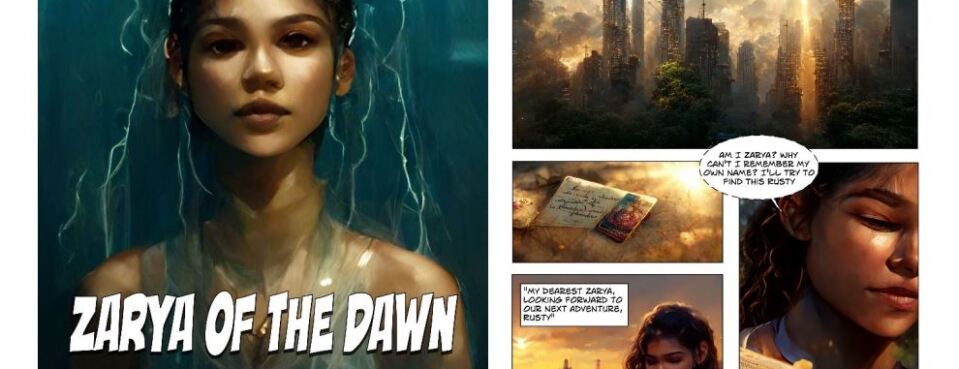In a landmark decision, the U.S. Copyright Office rejects Kris Kashtanova’s Midjourney-created comic book that creates a precedent, for now, about the licensing aspect of AI-generated art.
The comic book Zarya of the Dawn was created by Kristina Kashtanova using Midjourney’s AI art generator. The copyright for the same was rejected by the Copyright Office. A copyright was issued by the Office previously and overruled with this decision.
The story (text) and layout were manually penned by Kristina so the copyright for that is upheld. Only the images have their copyright taken away.
The underlying idea why the images had their copyright taken away is that any work by a non-human, such as a monkey taking a selfie, cannot be protected by copyright since the work is “not the product of human authorship.”
The Office granted the copyright initially because it was misled and learned the truth through social media accounts of the author later, as it was not disclosed in the initial application.
Giving text prompts to create artwork is unlike creating artwork in, let’s say, Photoshop. The process of AI art generation is based on randomness and noise and cannot be controlled by humans either. As such, one who creates artwork using a tool like Midjourney is not the actual author of the work as they are not forming the picture.
It remains open to doubt whether more control and guidance in an AI tool where it becomes assistive in nature and not unpredictably random will still be devoid of copyright protections.
This technically means that all AI art is in public domain and that you cannot take your own AI art through the standard copyright protection procedures. No law is being broken if someone else uses your AI-generated art.
That’s the basis for all AI art. On top of this, different licenses and terms can be applied to your AI art depending on which application you’re using.
For example, Midjourney produces assets under the Creative Commons Noncommercial 4.0 Attribution International License to non-paid members. This work can be shared and adapted freely as long as you give credit and not use it for commercial purposes, as per Creative Commons.
Other tools provide similar provisions when it comes to licensing and ownership of art created with their software.
The news comes amid reports of ChatGPT-authored ebooks flooding Amazon and artists putting together entire movies using AI tools.
Here is the letter (PDF) by the U.S. Copyright Office that overruled the copyright protection on the images in the comic.
Kashtanova calls this “great news” and comments how authors can now easily obtain copyright for their thoughts and work even when partially relying on AI.

